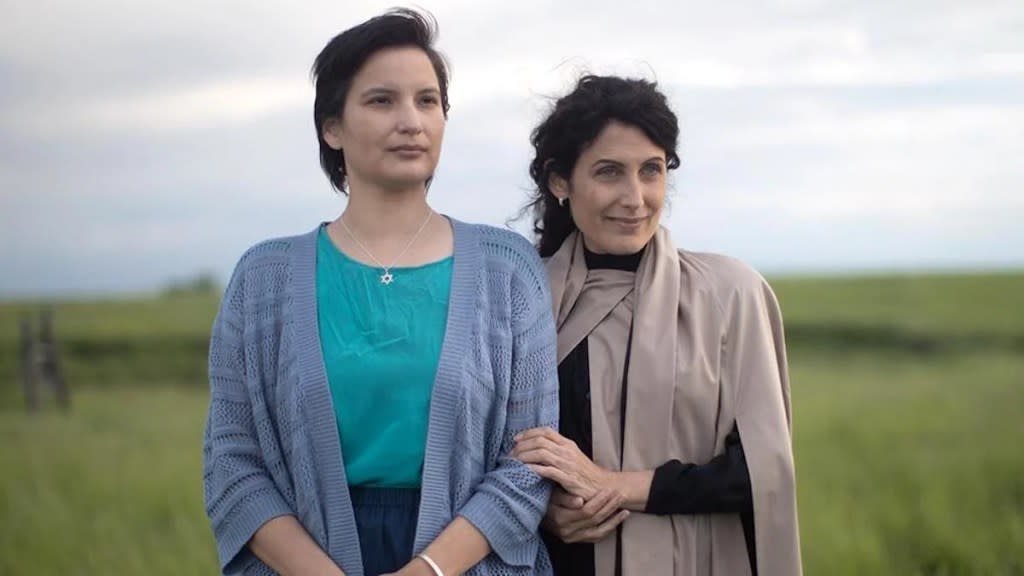How PBS Indigenous Drama ‘Little Bird’ Relates to Today’s ‘Very Profound’ Real-World Conflicts

“The Good Doctor” actress Lisa Edelstein told TheWrap that until she signed on to play a Holocaust survivor who adopts a native Canadian girl in the PBS drama “Little Bird,” she had “no idea” about the government program called “the Sixties Scoop.”
“It was a really horrible system. Everybody knew about it [at the time]. It was just considered the normal thing to do and it’s horrific,” she says of the thousands of indigenous children who were taken from their families in the 1960s.
Edelstein was able to talk about the six-part Canadian series, which premiered on Oct. 12, because PBS productions are considered “non-struck” work during the SAG-AFTRA strike.
Without directly addressing the harrowing Hamas attacks on Israel this week, she added, “Even in this horrific time period that we’re in right now, there’s something about storytelling and understanding each other’s trauma and trying to be human beings. This is very profound right now.”
In the series, Esther Rosenblum (Darla Contois), who was cruelly ripped away from her mother, father and siblings when she was 5 years old, begins searching for her birth family in her 20s. Her adoptive mother Golda (Edelstein) has always discouraged her from finding out more about her past, having been told that Esther, whose given name was Bezhig Little Bird, had been rescued from a “neglectful” family.
Edelstein talked to TheWrap about the historical underpinnings of “Little Bird” and more.
TheWrap: Were you aware of this chapter in Canadian history before you took this series?
Lisa Edelstein: I didn’t know anything about it. And then when I was in Canada, for the show that will remain not mentioned because we can’t mention shows, I started learning about indigenous issues because everything was starting to burble up.
Around that time, there was a big story about all the missing indigenous women and that their disappearances go unsolved. And they had also started finding mass graves of children from the residential school so there were all kinds of stories that were coming to the surface. But I only learned about the Sixties Scoop from doing this show.
It’s just devastating to see how this plays out in this one family alone. It ruined all their lives. Although the series does end with some hope and healing.
That is the hope, right? The hope is healing. I met an indigenous man who had been adopted at 5, I think, to a family in Pittsburgh. They adopted this kid because they needed a farmhand. And so they moved him into the barn, which is similar to the story in “Little Bird.” He grew up in the barn, he was not allowed in the family house. And he eventually descended into depression and addiction.
And when he turned 18, his birth mother found him because at that time, they were allowed to be told where their children were when they turned 18. So every child that had been stolen from her she waited and waited and the minute they turned 18, she found them. He went back to Canada to meet his family, got sober, he learned his language, learned his culture, and the day I met him he was becoming chief of the tribe.
Wow. That’s amazing. Can you talk about working with Darla, who plays your adopted daughter?
She’s such a treasure. She hadn’t done any films before, so it was a huge undertaking for her and I thought she handled it with incredible grace. Her father is a Sixties Scoop survivor and she told me her family history. I learned a lot of family history from a lot of people and I felt very honored to be a witness to that.
It’s really interesting because people who come from a traumatized background are reserved in welcoming others. It makes sense that trust has to be earned. And I felt like I was welcomed by a group of people that deserve the right to not welcome me. I was really grateful that I could just be there and hear their stories and represent mine and to have that kind of cultural exchange.
Did you base your portrayal of Golda on anybody in particular?
Not a specific person. My family came from Poland to New York, so it’s a slightly different accent. But what was similar was about having extreme trauma.
Golda was a teenager when she lost her real family. I think my character was moved to adopt what she thought was an abandoned child because she viewed that child as somebody who also lost their whole family. I think on some level she thought they were partners in that pain. They both suffered a great loss. Because she didn’t know that her daughter actually had a family that loved her. She didn’t understand they were stolen.
And then when something tragic happens, Behjig’s two families sort of blend their traditions and it’s really beautiful.
It makes me cry just thinking about it. Even in this horrific time period that we’re in right now, there’s something about storytelling and understanding each other’s trauma and trying to be human beings. This is very profound right now.
What’s next for you?
This month I was shooting a movie that had an interim agreement. So it’s very fortunate to actually be working every day. It’s a low, low, low, low, low budget. But it was just nice to be working. So as soon as I’m done, I’ll be able to go back to the picket lines.
“Little Bird” is streaming now at PBS.org and on the PBS app.
The post How PBS Indigenous Drama ‘Little Bird’ Relates to Today’s ‘Very Profound’ Real-World Conflicts appeared first on TheWrap.
